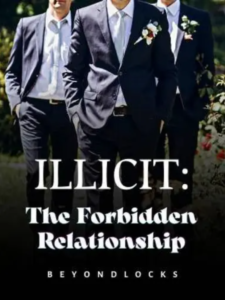Achrei Mois 2024: The 5th Question
by devadmin | May 2, 2024 7:18 pm
Raboyseyee and Ladies,
The 5th Question:
While the Ma Nishtana –the four questions- were being asked at the sedorim, the heylige Ois was thinking about a fifth: Why is it that when one stays home for Pesach, one eats normal sized meals? It’s rare that we ask for a second helping and especially so after stuffing our faces with copious amounts of matzo, morror, charoses and even hard-boiled eggs, all before the meal itself. Ober, when one travels to a hotel, one feels compelled to eat a second, or even a third main, and those, typically after gorging on all else available. Are we but chazerim without control over ourselves? Yes! Must we -because thousands are spent on flights and hotels- psychologically eat our monies worth? Yes! Must we eat until we feel like vomiting and disgorging? Seemingly! And the question for this parsha is this: If we cannot control our food intake, how can we control other behaviors, if you chap? Especially that one? Not to worry: the RBSO has your back; more below.
As an aside, at one seder attended by the heylige Ois five years ago, his hosts asked if I wanted potatoes or a banana to make a brocho over the karpas. A banana at the seder? Shoin, a new minhag may have been born and that raboyseyee, is efsher one of the more beautiful aspects of being religious and observing traditions. There is seemingly more than one way: we need to be tolerant and get used to this idea.

Ober, what have these questions to do with this week’s parsha of Achrei Mois which is mostly dedicated to the avoido (service) of Aharoin the koihen godol on Yom Kippur? Nu, it so happens that our parsha also discusses both vomiting, disgorgement, and as a special bonus -efsher to keep us engaged in the parsha otherwise dedicated to the work of the koihen godol, the RBSO made a hard stop and then went right into a litany of sexual relationships that He mamish abhors and therefore forbade. All this in our parsha? Indeed so, and let’s begin our 14th review of this parsha by chazering the relevant pisukim. Says the heylige Toirah (Vayikra 18:25), azoy:
| 25. And the land became defiled, and I visited its sin upon it, and the land vomited out its inhabitants. | כהוַתִּטְמָ֣א הָאָ֔רֶץ וָֽאֶפְקֹ֥ד עֲוֹנָ֖הּ עָלֶ֑יהָ וַתָּקִ֥א הָאָ֖רֶץ אֶת־יֽשְׁבֶֽיהָ: |
And says the heylige Toirah a few pisukim later (Vayikro 18: 28), azoy:
| 28. And let the land not vomit you out for having defiled it, as it vomited out the nation that preceded you. | כחוְלֹֽא־תָקִ֤יא הָאָ֨רֶץ֙ אֶתְכֶ֔ם בְּטַמַּֽאֲכֶ֖ם אֹתָ֑הּ כַּֽאֲשֶׁ֥ר קָאָ֛ה אֶת־הַגּ֖וֹי אֲשֶׁ֥ר לִפְנֵיכֶֽם: |
How does land vomit and disgorge? Is land not an inanimate object? What would cause land to behave in that manner, and what does it really mean? To chap what’s going on, of course we need to get past chamishi (fifth aliya) and into perek yud ches (chapter 18) where the RBSO instructed Moishe to tell the Yiddin that we are not to emulate the ways of either the Mitzrim (Egyptians), or the K’nanim. We are to follow neither their practices, nor their traditions. Avada we all know who the Mitzrim were: They were the Yiddin’s enslavers for hundreds of years; exactly how many for another day. And the K’nanim? They were the inhabitants of the land of Israel, then called K’nan, who were expelled to make room for the Yiddin to whom the RBSO promised the Land way back in parshas Lech Lecho to our zeyda Avrohom.
The bottom line: When all is said and done, it appears that vomiting and disgorgement are also somehow related to sexual activity. They are? What’s pshat? Since a list of prohibited sexual relationships (various forms of incest) follows this general rule, the posik “You shall not copy the practices of the land of Egypt where you dwelt, or of the land of Canaan to which I am taking you; nor shall you follow their laws. My rules alone shall you observe, and faithfully follow My laws: I the Lord am your G-od” may have been meant as an introduction: do not behave sexually the way the Egyptians do. Where is it written the Egyptians had lax or a nonexistent sexual handbook? In the heylige Toirah? Not!
Shoin: I see you perked up when you read of forbidden sexual relationships; let’s go veyter. What exactly was the RBSO telling Moishe? What traditions and practices were the Mitzrim and the K’nanim indulging in that so bothered the RBSO? Avada, that depends on whom you ask, and let’s begin with the Abrabenel, azoy: the deeds of the Egyptians were witchcraft and those of the K’nanim were illicit sexual relationships. Ober, does the heylige Toirah tell us that? No! It just tells us not to follow their practices. Ober so says the Abarbenel. And does everyone agree? Also not. Says the Ramban, and so also say a good number of our sages, that both the Mitzrim and the K’nanim (Canaanites) were involved in illicit sexual relationships. Of course they were, ober, back then, who wasn’t? It epes appears that illicit sexual relationships were normative behavior. In fact, from the wording of posik three above, it appears that at least one of these nations – the Mitzrim- made it standard practice, efsher even the law of the land, to be involved in such relationships.

Says the medrish (Vayikro Rabbah, chapter 23) that the Egyptians were steeped in sexual immorality, and the land of Canaan was replete with immorality and witchcraft. Both countries were filled with immorality and idolatry that is witchcraft. The Egyptians were steeped in sexual perversion and immorality, a distortion of the natural. How the medrish knows this, ver veyst?
And what are those illicit relationships that these nations indulged in? And what made them illegal, illicit, and repugnant to the RBSO? The list of such relationships includes sex with one’s mother because it gives one’s father shame, bestiality, sex with a mother and daughter, sex with two sisters, and a litany of others. They are all delineated beginning at shishi, and cover various acts which seem (mostly) quite repugnant. One thing is zicher: the RBSO had a very specific list of sexual acts that bothered Him. Sex with two sisters is forbidden? Also repugnant? Ober didn’t our zeyda and forefather Yaakov do just that? Didn’t he in fact marry not just two sisters, but two full sisters and two half-sisters, all four from one father, a fine gentleman by the name of Lovon? Indeed he did! And wasn’t Moishe – the RBSO’s handpicked leader of the Yiddin- also the product of one of the forbidden relationships? Avada you recall that Moishe’s father Amrom went and married his own aunt, and shoin. Nu, and as expected, many of our sages looked into and dealt with these seemingly incongruous relationship(s). Were not both Yaakov and Moishe critical players in our Jewish history? And the question is azoy: were such relationships permitted to all other nations? Are these and other illicit relationships illicit and verboten only if performed in the Promised Land? Is the forbidden act edict on the land, or on the person? Is one free to move about the cabin and conduct oneself as one wishes in any other place, or country? And the answers? Mamish a givaldige Kasha (questions)! And the answer? That too depends on whose view once accepts. Let’s see what a few had to say.
Says the Ibn Ezra, or so the Ois understands him to say, azoy: the prohibitions against sexual misconduct is directly related to the Land. Inside the Land all are verboten, ober outside, all is ok and that’s why Amrom could marry his aunt, and Yaakov could marry four of a kind. Ober says the Abarbenel: it’s not so. Neither Amrom nor Yaakov observed these laws. They married from the now forbidden list because these relationships were not verboten at the time they got married. It’s quite poshit. In other words: they married before the heylige Toirah was given. How this all worked out based on the view from other sages that our forefathers observed the entire Toirah kula (all 613 mitzvis) though not yet given, ver veyst? That for another day. And says the Ramban with regard to these relationships, azoy: the prohibitions against being involved with one or more on the forbidden list – the prohibition against what the heylige Toirah calls “arayis” (forbidden relationships), applies to the person and not on the land. And no matter where one lives or visits, if you chap, those on the no-shtup list, remain forbidden. Additionally, it so happens that the Land (of Israel) itself is also holy; it too does not tolerate such behavior. And the difference? The violation of arayis in the Land could result in vomiting and disgorgement. It’s the RBSO’s designated holy country. Of course, we speak not of the vomiting we are familiar with from overeating, or from those who disgorge due to other illnesses. Ober, should one violate these prohibitions outside the Land, any land outside of Israel, one is subject to other punishment -namely korase (being cut off). Luckily, one does not have to worry about being disgorged.

Seemingly the words in posik 28 which tell us not to emulate the ways of the Egyptians, is to remind us that although such practices appeared normal to them while they lived and were totally assimilated with their masters for over 210 years -so much so- that these relationships appear to be standard practice, the RBSO wants the Yiddin to know that He abhors such behavior. Even without the fear of assimilation, should they emulate and wish to partake thinking that they now live alone and there is no fear of assimilation, those practices, they still remain forbidden. If the Yiddin entering the Land follow the RBSO’s rules, they will live. If not, they too will be vomited out of the Land as were its previous inhabitants.
And while the RBSO -for reasons we don’t know and mistama cannot understand- seemingly allowed this type of behavior to go unchecked even in the Land while the K’nanim lived there –seemingly for generations- as soon as He imposed new rules governing such relationships, the Land itself became holy , and could no longer tolerate its inhabitants for whom these relationships were considered normative behavior. What happened next? The Land disgorged itself and vomited them out. This of course made way for the Yiddin who would -led by Yehoshua (Joshua)- move in and conquer it. Of course, after some time, the Yiddin too became sinners and shoin, just like that, both temples were destroyed and here we are watching as the newer generation of jew haters are trying to disgorge us from our respective communities. What’s going to be? Ve veyst?
The bottom line is azoy: the RBSO decided that such relationships –while standard practice over in other countries- was not what He envisioned, or wanted for His people once they were going to enter the Promised Land. Perhaps, after reviewing His files on the people of Noiach’s generation, and to the bad people of Sedom (Sodom and Gomorrah), He davka forbade them because other nations practiced them?!
Ober lets read this -new for this year- mamish out of the box approach from the Kli Yokor who explains that the pisukim above which command the Yiddin not to follow in the ways of the Mitzrim and Canaanites, reflect not the behavior of the Egyptians or of the Canaanites; instead they reflect bad behavior -sexual in nature- committed by our own people when they were in Egypt and while they were in the desert. Say it’s not so but the Kli Yoko says farkert: the Yiddin were sinners. When Yaakov and his sons first came to Egypt and Yoisef arranged a dwelling for them, we read this (Bereishis 47:27), “Thus Israel settled in the country of Egypt in the region of Goishen.” Many a sage points out that our forefathers erred when they “settled” in Mitzrayim. Instead of treating the country as a temporary residence, they emulated their ways. Lets us recall that such behavior in Egypt was seemingly normative. And their wrongdoing in relation to the land of Canaan? Let us recall that post slavery, the Yiddin -over and again and specifically when faced with difficulties in the midbar- disgraced the Holy Land by saying that they wished to return to Mitzrayim (Bamidbar 14:4), or to die in the wilderness (Shmois 16:3). These Yiddin weren’t quite ready for prime time in the promised land.
In the pisukim of our parsha, the RBSO provides the Yiddin with the formula to make amends for their mistakes. Come to promised land where not only can you abide by My commandments to their fullest, but you can abide by more of My commandments than anywhere else by performing mitzvis hateluyos ba’aretz (commandments very specific to the land) . In order not to fall prey to the negative influences of a foreign land, the RBSO instructs us azoy: “bechukosayhem lo telechu,” (“you shall not follow their laws”);
A gittin Shabbis-
The Heylige Oisvorfer Ruv
Yitz Grossman
Source URL: https://oisvorfer.com/achrei-mois-2024-the-5th-question/